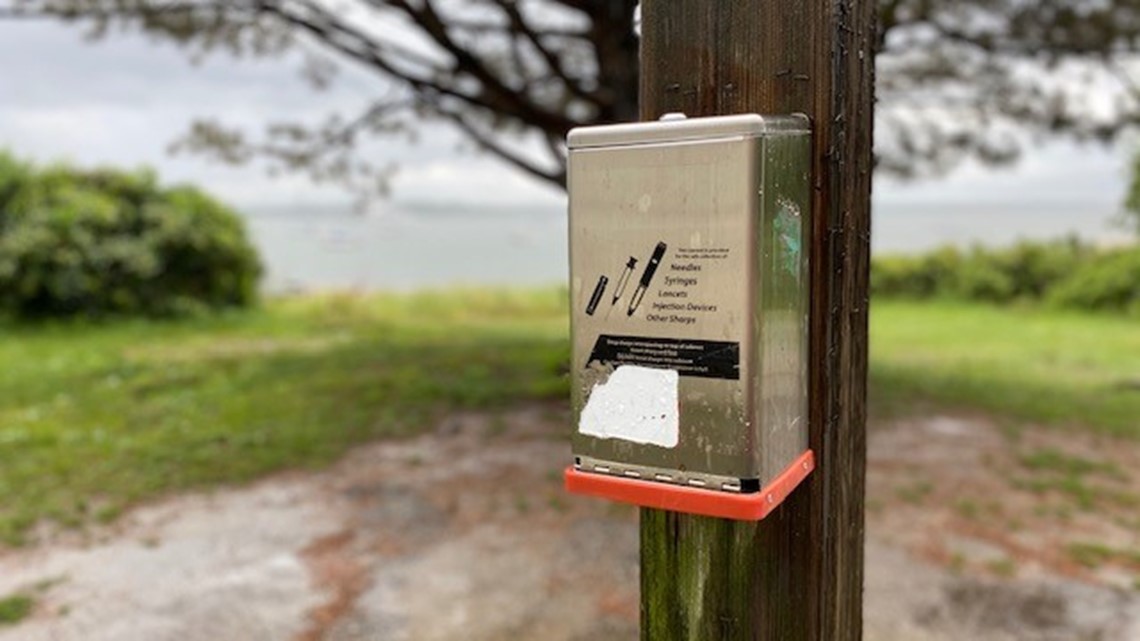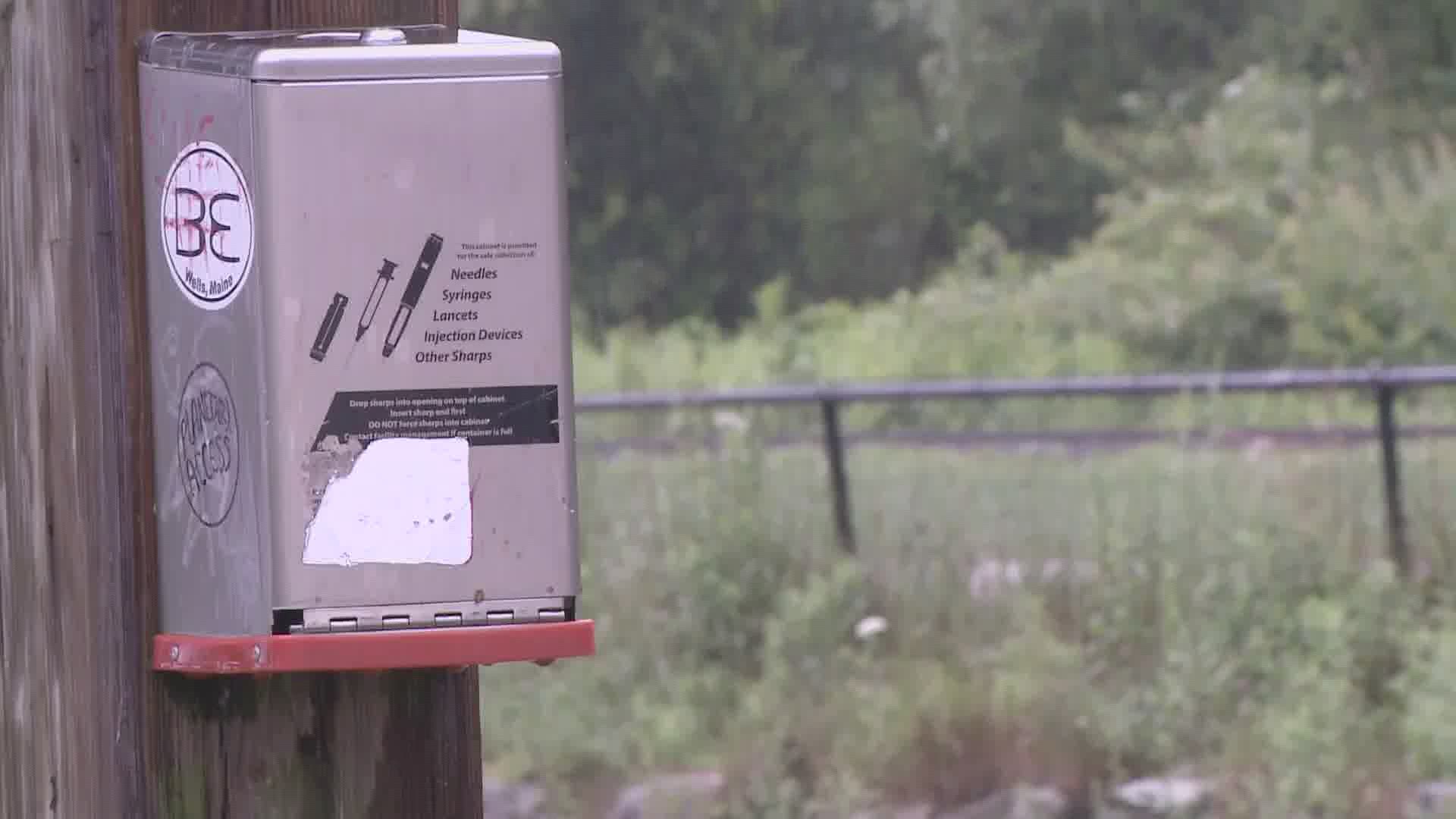PORTLAND, Maine — Portland Police say they are seeing a spike in drug overdoses.
While they say an increase is typical this time of year, the number of overdoses and deaths in a short amount of time is concerning.
Throughout the City of Portland, there are 20 metal boxes called Sharps containers. They are a place to safely dispose of used needles.
Since May, the city has collected more than 1,000 needles, most of them from the containers, others however were found scattered in public places.
"It's certainly unfortunate to see there is an increase of syringes discarded on the streets and in parks," said Bridget Rauscher, Program Manager for the Chronic Disease Prevention Program in Portland's Public Health Division.
"It's difficult for people to access sharp disposal or they may not know where they're at. We do our best to educated people on where the sharp boxes can be found to really use them or bring back to us so we can safely dispose of them."


Another issue facing the city is the number of recent overdoses.
According to Portland Police, there have been seven fatal and 79 non-fatal overdoses in the last 70 days. One fatal and nine non-fatal overdoses just in the past week alone.
While Rauscher says an uptick in summer months is not unusual, this recent increase is troubling.
And while she says it's hard to pinpoint the exact cause the pandemic is certainly not helping.
"There is limited shelter access, no public bathroom use so I think people are outside more and I think it contributes to cases where people aren't able to call 911 as soon because a person may not be discovered," said Rauscher.
According to Portland Police Naloxone or Narcan was used in most of the recent non-fatal overdoses.
Narcan is an overdose-reversal drug widely distributed in Portland.
"We want everyone to have Naloxone. We want folks to know how to recognize and appropriately respond to overdoses. If they come across a person who is unresponsive, may or may not be breathing, has pinpoint pupils and pale clammy skin to call 911," Rauscher said.
Rausher says the city offers a certified Needle Exchange Program, located at 103 India Street. The Exchange offers a one-for-one syringe exchange service as well as referrals to local resources. The staff will also distribute Narcan and trains people, including family members on how to use it.
Police say if anyone comes across discarded needles on public property they should call the City’s Public Works Department at 207-874-8493 or submit a See Click Fix service request so a trained member of City staff can pick up and dispose of the needle(s) properly.
If you or someone you know is using opioids, please familiarize yourself with the signs of an opioid-related overdose. This includes unresponsiveness, blue lips and/or fingernails, slow or no heartbeat, slow or no breathing, pale/clammy skin, and pinpoint pupils. If you suspect an overdose, please call 911 immediately and seek medical attention. Maine law protects people who seek medical assistance in such circumstances from being arrested or prosecuted for certain drug law violations.
Narcan is available at pharmacies without a prescription. Additionally, the Portland Public Health Division offers no-cost Narcan as well as Overdose Recognition & Response training. For more information or to schedule a training and/or obtain Narcan, please contact Zoe Brokos, Substance Use Prevention & Harm Reduction Services Program Coordinator, at zop@portlandmaine.gov or (207) 756-8024.
Unused or expired prescription medication can be safely disposed of 24/7 in the Portland Police Department lobby. The department also staffs a substance use disorder liaison as part of its Law Enforcement Addiction Advocacy Program (LEAAP). For more information on this outreach program: https://www.portlandmaine.gov/1715/Law-Enforcement-Addiction-Advocacy-Progr
For more information on youth substance use prevention, please contact Janet Dosseva at (207) 874-8452 or jdosseva@portlandmaine.gov.
For more information on the Overdose Prevention Project: https://www.portlandmaine.gov/411/Overdose-Prevention-Project

